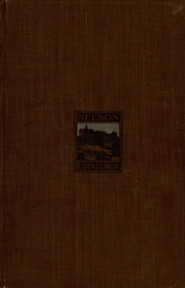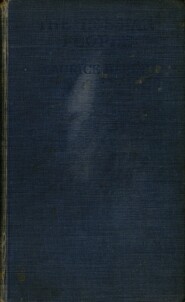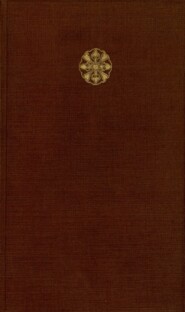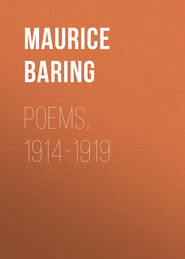По всем вопросам обращайтесь на: info@litportal.ru
(©) 2003-2024.
✖
Overlooked
Настройки чтения
Размер шрифта
Высота строк
Поля
He was slightly confused in his explanations. He then said good-night, and went back to his party. They were sitting at a table under the trees.
Kathleen felt relieved, unaccountably relieved, that he had gone, and she experienced a strange exhilaration. It was as if a curtain had been lifted up and she suddenly saw a different and a new world. She had the feeling of seeing clearly for the first time for many years. She saw quite plainly that as far as Lancelot was concerned, the past was completely forgotten. She meant nothing to him at all. He was the same Lancelot, but he belonged to a different world. There were gulfs and gulfs between them now. He had come here to see Donna Laura for a few hours. He had not minded doing this, although he knew that he would meet Kathleen. He had told her himself that he knew he would meet her. He had mentioned the rarity of his letters lately. He had been so busy, and then all that business … his uncle's death.
The situation was quite simple and quite clear. But the strange thing was that, instead of feeling her life was over, as she had expected to feel, she felt it was, on the contrary, for the first time beginning.
"I have been waiting for years," she thought to herself, "for this fairy Prince, and now I see that he was not the fairy Prince, after all. But this does not mean I may not meet the fairy Prince, the real one," and her eyes glistened.
She had never felt more alive, more ready for adventure. Anikin suggested that they should all walk in the garden. It was still daylight. They got up. The Princess, Arkright, Mrs. Knolles, and Count Tilsit walked down the steps first, and passed on down an avenue.
Kathleen delayed until the others walked on some way, and then she said to Anikin, who was waiting for her:
"Let us stay and talk here. It is quieter. We can go for a walk presently."
4
They did not stay long on the terrace. As soon as they saw which direction the rest of the party had taken they took another. They walked through the hotel gates across the street as far as a gate over which Bellevue was written. They had never been there before. It was an annexe of the hotel, a kind of detached park. They climbed up the hill and passed two deserted and unused lawn-tennis courts and a dusty track once used for skittles, and emerged from a screen of thick trees on to a little plateau. Behind them was a row of trees and a green corn-field, beneath them a steep slope of grass. They could see the red roofs of the village, the roofs of the hotels, the grey spire of the village church, the park, the green plain and, in the distance rising out of the green corn, a large flat-topped hill. The long summer daylight was at last fading away. The sky was lustrous and the air was quite still.
The fields and the trees had that peculiar deep green they take on in the twilight, as if they had been dyed by the tints of the evening. Anikin said it reminded him of Russia.
Kathleen had wrapped a thin white shawl round her, and in the dimness of the hour she looked as white as a ghost, but in the pallor of her face her eyes shone like black diamonds. Anikin had never seen her look like that. And then it came to him that this was the moment of moments. Perhaps the moon had risen. The cloudless sky seemed all of a sudden to be silvered with a new light. There was a dry smell of sun-baked roads and of summer in the air, and no sound at all.
They had sat down on the bench and Kathleen was looking straight in front of her out into the west, where the last remains of the sunset had faded some time ago.
This Anikin felt was the sacred minute; the moment of fate; the imperishable instant which Faust had asked for even at the price of his soul, but which mortal love had always denied him. In a whisper he asked Kathleen to be his wife. She got up from the seat and said very slowly:
"Yes, I will marry you."
The words seemed to be spoken for her by something in her that was not herself, and yet she was willing that they should be spoken. She seemed to want all this to happen, and yet she felt that it was being done for her, not of her own accord, but by someone else. Her eyes shone like stars. But as he touched her hand, she still felt that she was being moved by some alien spirit separate from herself and that it was not she herself that was giving herself to him. She was obeying some exterior and foreign control which came neither from him nor from her – some mysterious outside influence. She seemed to be looking on at herself as she was whirled over the edge of a planet, but she was not making the effort, nor was it Anikin's words, nor his look, nor his touch, that were moving her. He had taken her in his arms, and as he kissed her they heard footsteps on the path coming towards them. The spell was broken, and they gently moved apart one from the other. It was he who said quietly:
"We had better go home."
Some French people appeared through the trees round the corner. A middle-aged man in a nankin jacket, his wife, his two little girls. They were acquaintances of Anikin and of Kathleen. It was the man who kept a haberdasher's shop in the Galeries. Brief mutual salutations passed and a few civilities were bandied, and then Kathleen and Anikin walked slowly down the hill in silence. It had grown darker and a little chilly. There was no more magic in the sky. It was as if someone had somewhere turned off the light on which all the illusion of the scene had depended. They walked back into the park. The band was playing an undulating tango. Mrs. Knolles and the others were sitting on chairs under the trees. Anikin and Kathleen joined them and sat down. Neither of them spoke much during the rest of the evening. Presently Mrs. Roseleigh joined them. She looked at Kathleen closely and there was a slight shade of wonder in her expression.
The next day Mrs. Knolles had organized an expedition to the lakes. Kathleen, Anikin, Arkright, Princess Oulchikov and Count Tilsit were all of the party. When they reached the first lake, they separated into groups, Anikin and Kathleen, Count Tilsit and Mrs. Roseleigh, while Arkright went with the Princess and Mrs. Knolles.
Ever since the moment of magic at Bellevue, Kathleen had been like a person in a trance. She did not know whether she was happy or unhappy. She only felt she was being irresistibly impelled along a certain course. It is certain that her strange state of mind affected Anikin. It began to affect him from the moment he had held her in his arms on the hill and that the spell had so abruptly been broken. He had thought this had been due to the sudden interruption and the untimely intervention of the prosaic realities of life. But was this the explanation? Was it the arrival of the haberdasher on the scene that had broken the spell? Or was it something else? Something far more subtle and mysterious, something far more serious and deep?
Curiously enough Anikin had passed through, on that memorable evening, emotions closely akin to those which Kathleen had experienced. He said to himself: "This is the Fairy Princess I have been seeking all my life." But the morning after his moment of passion on the hill he began to wonder whether he had dreamed this.
And now that he was walking beside her along the broad road, under the trees of the dark forest, through which, every now and then, they caught a glimpse of the blue lake, he reflected that she was like what she had been before the decisive evening, only if anything still more aloof. He began to feel that she was eluding him and that he was pursuing a shadow. Just as he was thinking this ever so vaguely and tentatively, they came to a turn in the road. They were at a cross-roads and they did not know which road to take. They paused a moment, and from a path on the side of the road the other members of the party emerged.
There was a brief consultation, and they were all mixed up once more. When they separated, Anikin found himself with Mrs. Roseleigh. Mrs. Knolles had sent Kathleen on with Count Tilsit.
Anikin was annoyed, but his manners were too good to allow him to show it. They walked on, and as soon as they began to talk Anikin forgot his annoyance. They talked of one thing and another and time rushed past them. This was the first time during Anikin's acquaintance with Mrs. Roseleigh that he had ever had a real conversation with her. He all at once became aware that they had been talking for a long time and talking intimately. His conscience pricked him; but, so far from wanting to stop, he wanted to go on; and instead of their intimacy being accidental it became on his part intentional. That is to say, he allowed himself to listen to all that was not said, and he sent out himself silent wordless messages which he felt were received instantly on an invisible aerial.
For the moment he put all thoughts of what had happened away from him, and gave himself up to the enchantment of understanding and being understood so easily, so lightly. He put up his feet and coasted down the long hill of a newly discovered intimacy.
Presently there was a further meeting and amalgamation of the group as they reached a famous view, and the party was reshuffled. This time Anikin was left to Kathleen. Was it actually disappointment he was feeling? Surely not; and yet he could not reach her. She was further off than ever and in their talk there were long silences, during which he began to reflect and to analyse with the fatal facility of his race for what is their national moral sport.
He reflected that except during those brief moments on the hill he had never seen Kathleen alive. He had known her well before, and their friendship had always had an element of easy sympathy about it, but she had never given him a glimpse of what was happening behind her beautiful mask, and no unspoken messages had passed between them. But just now during that last walk with Mrs. Roseleigh, he recognized only too clearly that notes of a different and a far deeper intimacy had every now and then been struck accidently and without his being aware of it at first, and then later consciously, and the response had been instantaneous and unerring.
And something began to whisper inside him: "What if she is not the Fairy Princess after all, not your Fairy Princess?" And then there came another more insidious whisper which said: "Your Fairy Princess would have been quite different, she would have been like Mrs. Roseleigh, and now that can never be."
The expedition, after some coffee at a wayside hotel, came to an end and they drove home in two motor cars.
Once more he was thrown together with Mrs. Roseleigh, and once more the soul of each of them seemed to be fitted with an invisible aerial between which soundless messages, which needed neither visible channel nor hidden wire, passed uninterruptedly.
Anikin came back from that expedition a different man. All that night he did not sleep. He kept on repeating to himself: "It was a mistake. I do not love her. I can never love her. It was an illusion: the spell and intoxication of a moment." And then before his eyes the picture of Mrs. Roseleigh stood out in startling detail, her melancholy, laughing, mocking eyes, her quick nervous laugh, her swift flashes of intuition. How she understood the shade of the shadow of what he meant!
And that mocking face seemed to say to him: "You have made a mistake and you know it. You were spellbound for a moment by a face. It is a ravishing face, but the soul behind it is not your soul. You do not understand one another. You never will understand one another. There is an unpassable gulf between you. Do not make the mistake of sacrificing your happiness and hers as well to any silly and hollow phrases of honour. Do not follow the code of convention, follow the voice of your heart, your instincts that cannot go wrong. Tell her before it is too late. And she, she does not love you. She never will love you. She was spellbound, too, for the moment. But you have only to look at her now to see that the spell is broken and it will never come back, at least you will never bring it back. She is English, English to the core, although she looks like the illustration to some strange fairy-tale, and you are a Slav. You cannot do without Russian comfort, the comfort of the mind, and she cannot do without English solidity. She will marry a squire or, perhaps, who knows, a man of business; but someone solid and rooted to the English soil and nested in the English conventions. What can you give her? Not even talent. Not even the disorder and excitement of a Bohemian life; only a restless voyage on the surface of life, and a thousand social and intellectual problems, only the capacity of understanding all that does not interest her."
That is what the conjured-up face of Mrs. Roseleigh seemed to say to him.
It was not, he said to himself, that he was in love or that he ever would be in love with Mrs. Roseleigh. It was only that she had, by her quick sympathy, revealed his own feelings to himself. She had by her presence and her conversation given him the true perspective of things and let him see them in their true light, and in that perspective and in that light he saw clearly that he had made a mistake. He had mistaken a moment of intoxication for the authentic voice of passion. He had pursued a shadow. He had tried to bring to life a statue, and he had failed.
Then he thought that he was perhaps after all mistaken, that the next morning he would find that everything was as it had been before; but he did not sleep, and in the clear light of morning he realized quite clearly that he did not love Kathleen.
What was he to do? He was engaged to be married. Break it off? Tell her at once? It sounded so easy. It was in reality – it would be to him at any rate – so intensely difficult. He hated sharp situations.
He felt that his action had been irrevocable: that there was no way out of it. The chain around him was as thin as a spider's web. But would he have the necessary determination to make the effort of will to snap it? Nothing would be easier. She would probably understand. She would perhaps help him, and yet he felt he would never be able to make the slight gesture which would be enough to free him for ever from that delicate web of gossamer.
5
When Anikin got up after his restless and sleepless night he walked out into the park. The visitors were drinking the waters in the Pavilion and taking monotonous walks between each glass. Asham was sitting in a chair under the trees. His servant was reading out the Times to him. Anikin smiled rather bitterly to himself as he reflected how many little dramas, comedies and tragedies might be played in the immediate neighbourhood of that man without his being aware even of the smallest hint or suggestion of them. He sat down beside him. The servant left off reading and withdrew.
"Don't let me interrupt you," said Anikin, but after a few moments he left Asham. He found he was unable to talk and went back to the hotel, where he drank his coffee and for a time he sat looking at the newspapers in the reading room of the Casino. Then he went back to the park. One thought possessed him, and one only. How was he to do it? Should he say it, or write? And what should he say or write? He caught sight of Arkright who was in the park by himself. He strolled up to him and they talked of yesterday's expedition. Arkright said there were some lakes further off than those they had visited, which were still more worth seeing. They were thinking of going there next week – perhaps Anikin would come too.
"I'm afraid not," said Anikin. "My plans are changed. I may have to go away."
"To Russia?" asked Arkright.
"No, to Africa, perhaps," said Anikin.
"It must be delightful," said Arkright, "to be like that, to be able to come and go when one wants to, just as one feels inclined, to start at a moment's notice for Rome or Moscow and to leave the day after one has arrived if one wishes to – to have no obligations, no ties, and to be at home everywhere all over Europe."
Arkright thought of his rather bare flat in Artillery Mansions, the years of toil before a newspaper, let alone a publisher, would look at any of his manuscripts, and then the painful, slow journey up the stairs of recognition and the meagre substantial rewards that his so-called reputation, his "place" in contemporary literature, had brought him; he thought of all the places he had not seen and which he would give worlds to see – Rome, Venice, Russia, the East, Spain, Seville; he thought of what all that would mean to him, of the unbounded wealth which was there waiting for him like ore in quarries in which he would never be allowed to dig; he reflected that he had worked for ten years before ever being able to go abroad at all, and that his furthest and fullest adventure had been a fortnight spent one Easter at a fireless Pension in Florence. Whereas here was this rich and idle Russian who, if he pleased, could roam throughout Europe from one end to the other, who could take an apartment in Rome or a palace in Venice, for whom all the immense spaces of Russia were too small, and who could talk of suddenly going to Africa, as he, Arkright, could scarcely talk of going to Brighton.
"Life is very complicated sometimes," said Anikin. "Just when one thinks things are settled and simple and easy, and that one has turned over a new leaf of life, like a new clean sheet of blotting-paper, one suddenly sees it is not a clean sheet; blots from the old pages come oozing through – one can't get rid of the old sheets and the old blots. All one's life is written in indelible ink – that strong violet ink which nothing rubs out and which runs in the wet but never fades. The past is like a creditor who is always turning up with some old bill that one has forgotten. Perhaps the bill was paid, or one thought it was paid, but it wasn't paid – wasn't fully paid, and there the interest has gone on accumulating for years. And so, just as one thinks one is free, one finds oneself more caught than ever and obliged to cancel all one's new speculations because of the old debts, the old ties. That is what you call the wages of sin, I think. It isn't always necessarily what you would call a sin, but is the wages of the past and that is just as bad, just as strong at any rate. They have to be paid in full, those wages, one day or other, sooner or later."
Arkright had not been an observer of human nature and a careful student of minute psychological shades and impressions for twenty years for nothing. He had had his eyes wide open during the last weeks, and Mrs. Knolles had furnished him with the preliminary and fundamental data of her niece's case. He felt quite certain that something had taken place between Anikin and Kathleen. He felt the peculiar, the unmistakeable relation. And now that the Russian had served him up this neat discourse on the past he knew full well that he was not being told the truth. Anikin was suddenly going away. A week ago he had been perfectly happy and obviously in an intimate relation to Miss Farrel. Now he was suddenly leaving, possibly to Africa. What had happened? What was the cause of this sudden change of plan? He wanted to get out of whatever situation he found himself bound by. But he also wanted to find for others, at any rate, and possibly for himself as well, some excuse for getting out of it. And here the fundamental cunning and ingenious subtlety of his race was helping him. He was concocting a romance which might have been true, but which was, as a matter of fact, untrue. He was adding "the little more." He was inventing a former entanglement as an obstacle to his present engagements which he wanted to cancel.
Arkright knew that there had been a former entanglement in Anikin's life, but what Anikin did not know was that Arkright also knew that this entanglement was over.
"It is very awkward," said Arkright, "when the past and the present conflict."
"Yes," said Anikin, "and very awkward when one is between two duties."
I think I have got him there, thought Arkright. "A French writer," he said aloud, "has said, 'de deux devoirs, il faut choisir le plus désagréable; that in chosing the disagreeable course you were likely to be right."











